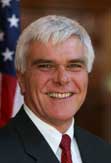Updated Friday at 11 a.m.
Year after year, the Georgia General Assembly deals with proposals to revise the state’s health care regulatory rules.
It’s always a contentious process, often pitting hospitals against one another. Even minor tweaks to the system typically get blocked before the end of the legislative session.
Come January, though, the state’s regulatory system, known as certificate of need (CON), could be due for a major overhaul, if not a full repeal.
The influential House Rural Development Council on Thursday announced recommendations for legislation in the upcoming General Assembly session. These ideas include replacing CON with an accreditation and “rigorous licensing system’’ for health care providers.

The current health care delivery system “must be revolutionized’’ to improve access to medical services, control costs and improve health outcomes for Georgians, said Rep. Terry England (R-Auburn), co-chairman of the council, at a meeting in Dahlonega.
The recommendations come at the same time the Trump administration is urging states to consider scaling back or repealing their CON laws, and is pushing back against hospital consolidation.
The CON process governs the construction and expansion of health care facilities and services. A provider must obtain a “certificate of need” (CON) to go forward with such a project. Such health care regulatory decisions have a big impact on communities and businesses.
Hospital groups have been strong defenders of the current CON system in Georgia, vigorously opposing any changes.
Georgia is one of the most restrictive states in its certificate-of-need laws, the Rural Development Council was told recently at a Statesboro meeting. Fifteen states have repealed their CON laws.
Under the council’s proposals, nonprofit hospitals would have to adhere to indigent and charity care requirements of 7.35 percent of revenues. For-profit hospitals would face a 4.35 percent requirement – a lower amount, England said, because they also pay taxes. Hospitals not reaching those required amounts would face a fine.

The council recommendations appear to include a pathway for Cancer Treatment Centers of America to expand its capacity and serve more Georgia patients at its Newnan facility. CTCA has pushed such legislation at the General Assembly, but has run into strong opposition from other hospitals.
A proposed sports medicine center in Alpharetta may also gain a route to state approval under the council plan. And it could clear a way to allow children’s hospitals to “co-locate’’ pediatric beds in adult hospitals.
Metro Atlanta would generally be exempt from licensing scrutiny under the new setup, except if a building proposal is within 20 miles of a facility in another region.
For other areas, a new medical provider would have a construction or medical service proposal reviewed if located within 20 miles of an existing provider, which would be allowed to contest the application.
England said nonprofit hospitals would be required to disclose financial information on their websites, including their IRS 990 forms and executive salaries, as well as their community benefit spending, terms of their debt, and properties owned, including those that are vacant.
Any subsidiaries of hospital authority-owned hospitals and foundations would be subject to Georgia Open Records Act requirements, under the council proposals. The availability of such records has been the subject of a high-profile legal case involving Northside Hospital.
The Rural Development Council also recommended raising the tax credit ceiling for rural hospital donations from the current $60 million to $100 million. The program has been “incredibly successful,’’ England said. He said the council aims to clarify rules involving donation processes and what hospital expenditures are allowed with those funds.
As England concluded his remarks, state Rep. Dominic LaRiccia (R-Douglas) said, “This is uncharted territory. This is impressive.”
Co-chairman Jay Powell (R-Camilla) also outlined the council’s proposals promoting broadband in rural Georgia and regional development authorities.

Altogether, Powell said, the council recommendations may take nine to 12 separate bills. The goal is to draft them before the legislative session begins in January, he said.
Hospital groups Thursday applauded the proposed raising of the rural hospital tax donation ceiling.
The program ‘’is very popular and extremely effective,’’ said Ethan James of the Georgia Hospital Association, which has defended the current CON system. He said it will take some time to study the council’s CON recommendations.
But James added, “I find it curious that the Rural Development Council would make such sweeping recommendations involving metro health care providers.’’ GHA is working on its own CON proposals, he said.
Monty Veazey of the Georgia Alliance of Community Hospitals, which represents nonprofit hospitals, said, “My concern is that this favors the out-of-state, for-profit institutions owned by Wall Street hedge funds over the community-based hospitals that serve as the front line for health care for many Georgians — putting us at risk for more closures in the future.’’

Jimmy Lewis of HomeTown Health, an association of rural hospitals, said that the package of recommendations is “a statement of frustration by the Legislature on this whole subject [of CON].”
“Rural hospitals have to be supportive of proposals that strengthen their position in the marketplace, and this [package] does that,’’ he added.
Gina Lee, project director of the proposed sports medicine center, praised the council’s work. “We appreciate the committee’s hard work and determination to make significant changes in health care, including CON,” she said. “It will allow our world-class facility, Legacy Sports Institute, the opportunity to bring tremendous value through research, education and innovation to the entire state of Georgia.”
Earlier this week, Modern Healthcare reported on the Trump administration’s effort to fight hospital consolidation.
Administration officials cited increasingly consolidated markets as a key driver for rising costs for patients, particularly hospitals’ purchases of physician practices, Modern Healthcare reported.
The White House called on the Justice Department and the Federal Trade Commission to “monitor the competitive landscape” of providers to “prevent anti-competitive behavior.”
An administration official also said that certificates of need “represent one of the worst” of states’ anti-competitive regulations, Modern Healthcare reported.

The White House wants states to consider repealing certificate of need laws, or at least blocking competitors from having a say on a provider’s CON application to enter a new health care market.

